The world of hybrid cars is often shrouded in a fog of myths and misconceptions. With the growing popularity of these vehicles, it’s easy to get swept up in rumors that can deter potential buyers. Are hybrids really as efficient and practical as they claim? Or do hidden pitfalls lurk beneath their eco-friendly exteriors?
In this post, we’ll peel back the layers on some common beliefs about hybrid vehicles. From battery longevity to performance capabilities, let’s dive into the truth behind these innovative cars and discover what distinguishes facts from fiction. Buckle up; it’s going to be an enlightening ride!
Hybrid Vehicles Require Frequent Battery Replacements
One of the most persistent myths about hybrid vehicles is that their batteries need constant replacement. Many people believe these costs will drain their wallets over time. In reality, hybrid batteries are designed to last much longer than anticipated. Most manufacturers offer battery coverage warranties extending up to eight years or 100,000 miles, which gives drivers peace of mind regarding longevity. Additionally, technological advancements have made modern hybrid batteries more durable and efficient than ever. The energy management systems in hybrids help preserve battery life by optimizing how and when power is used. While it’s true that replacing a battery can be expensive if needed outside of warranty, such instances are rare. Many owners find they can drive their hybrids for many years without facing this issue.

Hybrids Are Underpowered and Lack Performance
Many believe hybrid cars are sluggish and fail to deliver an exhilarating driving experience. This myth often stems from early models, which focused more on fuel efficiency than power. However, technology has advanced significantly. Today’s hybrids have robust electric motors that work alongside traditional gasoline engines. This combination results in impressive acceleration and responsiveness. Take a look at popular hybrid sports cars; they can rival their purely gas-powered counterparts in performance metrics. Manufacturers have learned how to harness electric power effectively, leading to a smooth balance between speed and efficiency. Moreover, hybrids excel in urban environments where stop-and-go traffic is commonplace. The instant torque provided by electric motors allows for quick takeoffs without sacrificing fuel economy. Therefore, dismissing hybrids as underpowered overlooks their true capabilities in modern engineering.
Hybrid Cars Are Expensive to Maintain
One common misconception is that hybrid cars have hefty maintenance costs. The truth is that many hybrids have lower maintenance requirements than traditional gasoline vehicles. Hybrids typically feature fewer moving parts in their engines. This simplicity can lead to reduced wear and tear over time. For instance, they don’t require oil changes as frequently due to their efficient engine designs. Additionally, regenerative braking systems found in hybrids help extend the life of brake components. Drivers may find themselves replacing brakes less often compared to conventional cars. While battery replacements might seem daunting financially, many manufacturers offer extensive warranties covering those components for up to 8 years or 100,000 miles. Thus, unexpected expenses are significantly minimized for most owners. Choosing a hybrid could result in savings on upkeep while contributing positively to the environment.
Hybrids Need to Be Plugged In to Recharge
A common misconception about hybrid vehicles is that they must be plugged in to recharge their batteries. This myth stems from the popularity of plug-in hybrid electric vehicles (PHEVs), which do require an external power source. However, most traditional hybrids operate on a different principle. They have a self-charging system that utilizes both gas and electricity. The gasoline engine generates power while driving, and regenerative braking helps recharge the battery during stops or deceleration. This means you can simply drive your hybrid without worrying about finding charging stations. It seamlessly blends fuel efficiency with convenience for everyday use. So if you’re considering a hybrid car, rest assured that it won’t tie you down to charging schedules or infrastructure limitations like fully electric models might. It’s designed for flexibility and ease of use in daily commuting scenarios.…


 An engine misfire is one of the most common issues that car owners experience. This occurs when one or more cylinders in your engine fail to ignite properly, resulting in a rough-running engine and a loss of power. There are several possible causes for an engine misfire. It could be due to worn-out spark plugs, leading to a weak or inconsistent spark. Another culprit could be a faulty ignition coil, which generates the high voltage needed to create the spark. In some cases, a misfire can also be caused by problems with the fuel system. For example, if there’s a clogged fuel injector or insufficient fuel pressure, it can disrupt the proper combustion process.
An engine misfire is one of the most common issues that car owners experience. This occurs when one or more cylinders in your engine fail to ignite properly, resulting in a rough-running engine and a loss of power. There are several possible causes for an engine misfire. It could be due to worn-out spark plugs, leading to a weak or inconsistent spark. Another culprit could be a faulty ignition coil, which generates the high voltage needed to create the spark. In some cases, a misfire can also be caused by problems with the fuel system. For example, if there’s a clogged fuel injector or insufficient fuel pressure, it can disrupt the proper combustion process. One of the most frustrating engine issues drivers experience is difficulty starting their vehicle. Whether it’s a slow crank, no response at all, or frequent stalling after starting, these problems can be a major inconvenience. While there are several potential causes for starting problems, one common culprit is a faulty ignition system. The ignition system is crucial in getting your engine up and running smoothly. If any component within this system malfunctions, it can lead to starting issues. One possibility is a worn-out spark plug or ignition coil that fails to generate the necessary spark to ignite the fuel-air mixture in the cylinders.
One of the most frustrating engine issues drivers experience is difficulty starting their vehicle. Whether it’s a slow crank, no response at all, or frequent stalling after starting, these problems can be a major inconvenience. While there are several potential causes for starting problems, one common culprit is a faulty ignition system. The ignition system is crucial in getting your engine up and running smoothly. If any component within this system malfunctions, it can lead to starting issues. One possibility is a worn-out spark plug or ignition coil that fails to generate the necessary spark to ignite the fuel-air mixture in the cylinders.
 As mentioned, electric cars are cheaper to operate and maintain than gas cars. However, it would help if you considered the cost of charging your car. If you live in an urban area with easy access to EV chargers, then this shouldn’t be a problem. However, if you live in a rural area, you might have to install a charger at home, which can be costly. You should also consider the cost of charging when you’re on the road. Many public chargers require a membership fee, so you’ll need to factor that in.
As mentioned, electric cars are cheaper to operate and maintain than gas cars. However, it would help if you considered the cost of charging your car. If you live in an urban area with easy access to EV chargers, then this shouldn’t be a problem. However, if you live in a rural area, you might have to install a charger at home, which can be costly. You should also consider the cost of charging when you’re on the road. Many public chargers require a membership fee, so you’ll need to factor that in.
 It’s essential to make sure your car can stop, turn and have a good grip with the correct tire pressure. The pressure of a single tire can make a big difference in your car’s performance. Modern cars are equipped with a tire monitoring system that warns you if the pressure is not correct. To check your car’s tire pressure before you leave, you can use a pressure gauge (inexpensive and readily available) to check the pressure. The right tire pressure is indicated on the plate inside the driver’s door and in the car manual. It’s easy to top off the air in your garage. Most pumps allow you to set the pressure beforehand.
It’s essential to make sure your car can stop, turn and have a good grip with the correct tire pressure. The pressure of a single tire can make a big difference in your car’s performance. Modern cars are equipped with a tire monitoring system that warns you if the pressure is not correct. To check your car’s tire pressure before you leave, you can use a pressure gauge (inexpensive and readily available) to check the pressure. The right tire pressure is indicated on the plate inside the driver’s door and in the car manual. It’s easy to top off the air in your garage. Most pumps allow you to set the pressure beforehand. Check the level of all fluids in your car, including engine oil, transmission fluid, and windshield washer fluid. Top up fluids that are low before driving. Fluids in the car before a long trip; make sure the engine oil, coolant, and transmission fluid are in good condition. If you are driving an AT car, check the engine oil, coolant, and transmission fluid.
Check the level of all fluids in your car, including engine oil, transmission fluid, and windshield washer fluid. Top up fluids that are low before driving. Fluids in the car before a long trip; make sure the engine oil, coolant, and transmission fluid are in good condition. If you are driving an AT car, check the engine oil, coolant, and transmission fluid. Reliable braking depends not only on the brake fluids but also on the mechanical components of the brake pads. The most important safety measure before a long trip is to check the condition of the brake pads. If you hear unnecessary sounds when you apply the brakes, they are not in good condition. Your usage will determine when you should replace your brake pads. The life of your brake pads can be shortened quickly by overuse or poor braking. Don’t ignore the numb feeling, have your brakes checked before setting out on a trip.…
Reliable braking depends not only on the brake fluids but also on the mechanical components of the brake pads. The most important safety measure before a long trip is to check the condition of the brake pads. If you hear unnecessary sounds when you apply the brakes, they are not in good condition. Your usage will determine when you should replace your brake pads. The life of your brake pads can be shortened quickly by overuse or poor braking. Don’t ignore the numb feeling, have your brakes checked before setting out on a trip.…
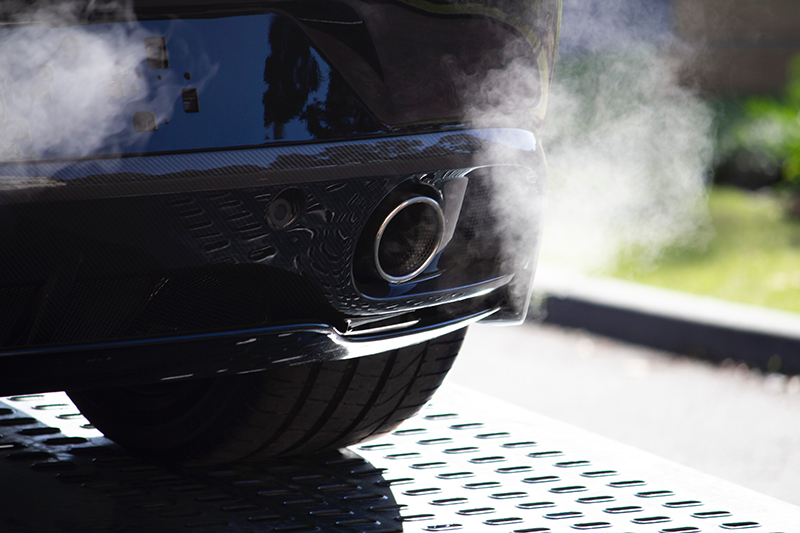

 If the broken glass is not caused by your own faults, then you definitely have to call the police. It means that either a passing driver accidentally hit your car or a carjacker broke into your vehicle.
If the broken glass is not caused by your own faults, then you definitely have to call the police. It means that either a passing driver accidentally hit your car or a carjacker broke into your vehicle. Even if the window’s glass does not break entirely, and it looks like it can stay the way it is for a while, it will be safer if you clean that glass. It’s only a matter of time before a road bump makes the glass totally shatter and make a mess.
Even if the window’s glass does not break entirely, and it looks like it can stay the way it is for a while, it will be safer if you clean that glass. It’s only a matter of time before a road bump makes the glass totally shatter and make a mess.
 Nowadays, you can find insurance policies that cover the cost of auto glass replacement. Even if you do not have coverage for glass, you can find competitive prices for auto glass repair and windshield replacement. The truth is that auto glass replacement helps to maximize savings. Although small chips and cracks can be repaired, accumulating them can seriously affect the glass’s integrity that can result in costly repairs over time.
Nowadays, you can find insurance policies that cover the cost of auto glass replacement. Even if you do not have coverage for glass, you can find competitive prices for auto glass repair and windshield replacement. The truth is that auto glass replacement helps to maximize savings. Although small chips and cracks can be repaired, accumulating them can seriously affect the glass’s integrity that can result in costly repairs over time. A cracked or chipped windshield creates a lot of concerns for your view while driving. If you do not have a clear view, you can cause accidents. An auto glass repair or replacement can minimize any risks that obscure your view of the road ahead. That is the case if the windshield sustains chips and cracks along the line of sight. Ideally, technicians inject epoxy into the cracks and chips to restore visual clarity.
A cracked or chipped windshield creates a lot of concerns for your view while driving. If you do not have a clear view, you can cause accidents. An auto glass repair or replacement can minimize any risks that obscure your view of the road ahead. That is the case if the windshield sustains chips and cracks along the line of sight. Ideally, technicians inject epoxy into the cracks and chips to restore visual clarity.


 It should be a type meant for your car model. Purchasing any other thing may not work out for you. Some will come with a code or identification number that will help you pick what is best for your car. Proper identification is essential in buying something that will offer you the best service.
It should be a type meant for your car model. Purchasing any other thing may not work out for you. Some will come with a code or identification number that will help you pick what is best for your car. Proper identification is essential in buying something that will offer you the best service.
 How you drive your car determines the amount of fuel you use each day. You need to slow down more often to avoid using
How you drive your car determines the amount of fuel you use each day. You need to slow down more often to avoid using